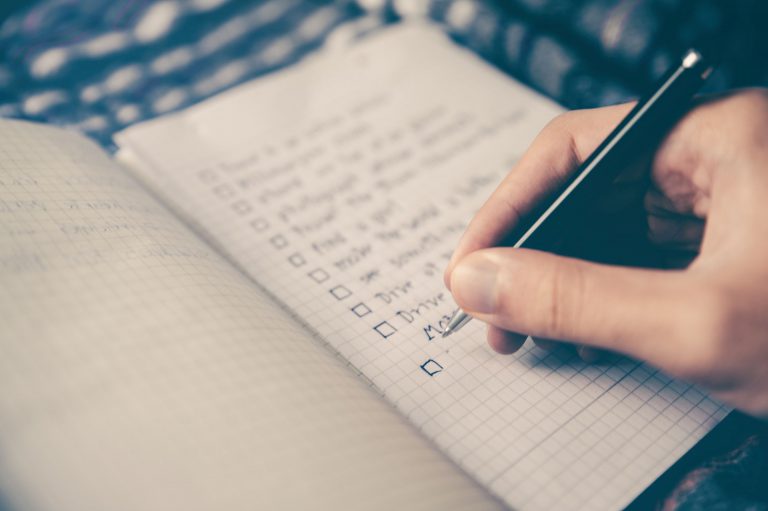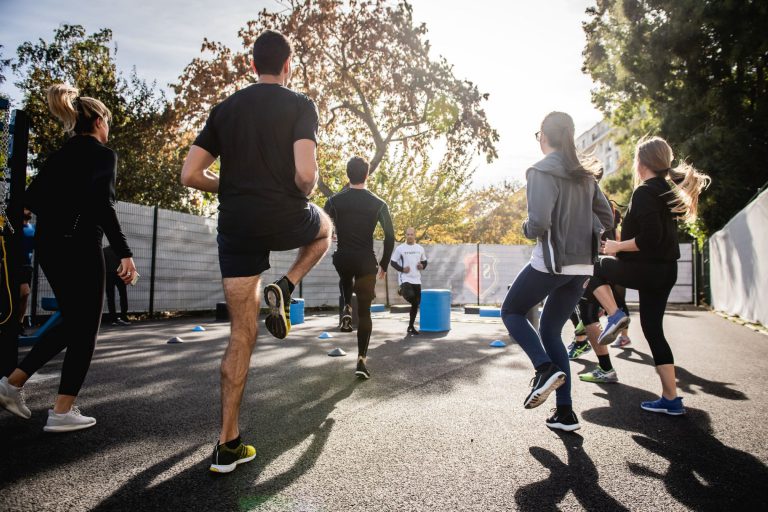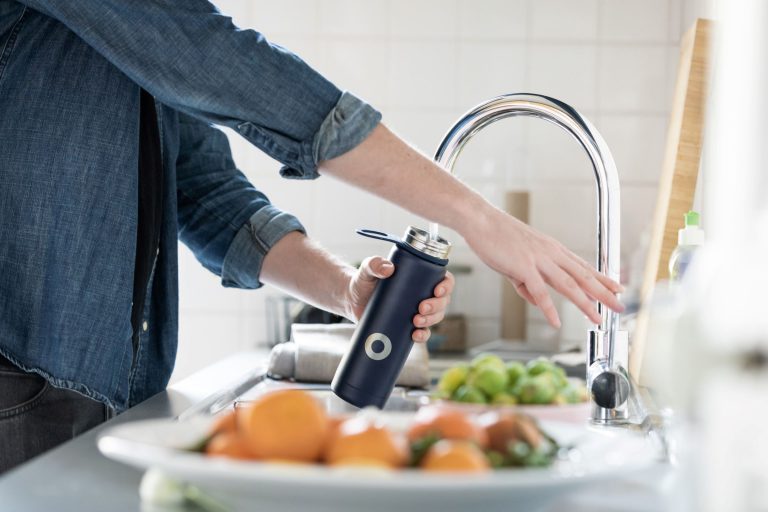Time passes whether you make the most of it or not.
If you are a fan of the musical Rent, you probably know that there are 525,600 minutes in a day, more commonly known as 24 hours. A person who struggles with time management, self-control, or maintaining healthy habits may feel there aren’t enough hours or minutes in the day. However, productivity increases when you have the right balance of focus, organization, and self-care.
How to be more productive
How to be more productive is a hot topic right now. Productivity refers to the ability to work efficiently and maximize output. While there is no magic formula for productivity, there are productivity tips you can incorporate into your daily routine to form better work habits. Read on to discover the best ways to improve work performance!
1. Start your day with a morning routine
Mornings set the tone for the rest of the day. Below are a few productivity tips that will help you become more energetic, focused, and productive as soon as you wake up.
• Don’t let others ruin your morning
If you are in the habit of checking your email or social media accounts before you even get out of bed, you are not alone. Reading emails first thing in the morning could quickly sour your mood or induce stress before you even get a little “me” time. Wait until you’re in the office to check your email and social media accounts—productivity increases when you start your day on the right foot.
• Quiet time is gold
Fifteen to thirty minutes of quiet time in the morning can help you focus and get in the right state of mind to take on the day. Try reading a book, meditation, prayer, yoga, or just sitting silently with a cup of coffee.
• Breakfast is the most important meal of the day
Many people skip breakfast because they’re rushing out the door, but that’s a mistake. Studies have linked eating breakfast to good health, better memory, and concentration, which are ways to improve work performance. Eating within one hour of waking up can give you the energy you need to get things done and focus at work.1
2. Make a good to-do list the night before
To-do lists, as you might already know, are a great productivity tool. They help you stay organized and focused. However, if you put your to-do list together at the start of a demanding workday, chances are you could forget something or incorrectly prioritize your tasks.
Productivity increases when you create the most effective to-do list and write it out the night before. Review the list and pick one to three items to complete first. When the workday rolls around, work on priority one, then two and three. Things will inevitably come up throughout the workday, and your to-do list might grow. But, you can quickly assess and ask yourself, is the new task more important than your top three priorities? If it is, then get started on it. And if it’s not, throw it on the to-do list and focus on it later.

3. The two-minute rule
David Allen is a productivity consultant and best-selling author of Getting Things Done, heralded by TIME magazine as “the defining self-help business book of its time.” In his book, Allen introduces the two-minute rule. If a task can be completed in two minutes, do it because it takes longer to review, ignore it, and then return to complete it later.2
“Now, there are many times that you have a next step that’s going to take a longer amount of time, like drafting some big new spreadsheet. You wouldn’t want to do that in two minutes. It’s a good idea to keep a lot of little things to do when you get those strange little windows of time, like cleaning up old emails or purging some of your files. There’s a lot of things around me to do when I get a weird little window of time and when I don’t have a lot of energy.”
David Allen
When a task pops up, the first thing you should do is ask yourself, is this something I can complete in two minutes? If the answer is yes and you have the time, do it. Clear it out, get it done, and move on. If you don’t have the time right then and there, make a good to-do list of “two-minute tasks” that you can tackle when you have a little extra time between conference calls, meetings, or other activities.
4. Eliminate distractions
The more you try to do at a time, the less productive you will be. The human brain isn’t wired to multitask, which means if you try to write a report, answer emails, and check your notifications on Instagram simultaneously, your work product will suffer.
According to the American Psychological Association, multitasking reduces productivity by as much as 40%. Multitasking occurs when someone tries to perform two tasks simultaneously, switch from one task to another, or perform two or more tasks in rapid succession.3
Research has shown that it takes an average of 25 minutes to return to a task after you have been interrupted, which is why it’s essential to focus on one task at a time and avoid the temptation to multitask.4
Productivity increases when you remove distractions – focus on ONE task at a time. If someone calls you while you are in the middle of writing an email, call them back after you finish the email. Or, if you need to speak to the person on the phone right away, stop writing the email.
Social media, online shopping, games, and internet videos can also be a huge distraction – so resist the urge to open them while working on a task. You might even want to consider installing an anti-distraction program like Freedom, SelfControl, or Anti-Social to help you stay on task.

5. Schedule phone calls
An unexpected call pulls you away from what you are trying to accomplish, and the endless game of phone-tag only eats up your time. If you need to talk to someone, try sending an email requesting the information you need or schedule a call. Don’t forget, multitasking is a timewaster, and productivity increases when you focus on ONE task at a time.
6. Make your workspace comfortable
The average worker spends at least 40 hours working. Whether you’re working from home or in an office, it’s essential to feel comfortable. Aside from the basic equipment you need to perform your job, four workspace components can help improve work performance.
If you spend a lot of time sitting at a desk, your chair is probably the most critical item. You want a chair that is both comfortable and supportive to prevent injury, back and neck pain. Next comes lighting – and studies show that natural light is better on morale, energy, and stress levels than artificial light. Make windows your primary source of light and add lighting fixtures if needed.5
If you didn’t think décor was a productivity tool, think again. Your physical workspace can have a significant effect on concentration and productivity. After all, employees who enjoy their office environment end up feeling more engaged, happy, and productive.6
Colors, textures, pictures, and artwork are all things that can help your workspace feel more dynamic, creative, and visually stimulating.
Last but not least, organization, organization, organization. Staying organized is an essential work habit and productivity tip. It’s important to know where all of your paperwork, office supplies, and other accessories are so you can use them when you need them. If you can’t find something, then you can kiss improving your work performance goodbye. But more than that, a messy workspace can deplete your energy and make it difficult to concentrate. If your workspace does get chaotic, productivity increases when you take the time to organize your space regularly. It’s also a great work habit and life habit to practice.

7. Exercise daily
Everyone knows that exercise is a key ingredient to a healthy lifestyle, but did you know that productivity increases when you work out regularly? Exercise is a great way to improve work performance and productivity because it can help boost alertness. Productivity increases when you exercise because you increase blood flow to the brain, which can help sharpen your awareness and make you more ready to tackle your next big project.7
Exercise can also relax you, help you feel less anxious, and make you feel better about yourself.8
8. You are what you eat
Many people only relate eating healthy to losing weight, but it is so much more than that. Healthy eating is an essential part of a healthy lifestyle and is a great way to improve work performance.
According to the Harvard Business Review, food directly impacts our cognitive performance, which is why a poor decision at lunch can derail an entire afternoon. Our body converts almost everything we eat into glucose, which provides the energy our brains need to stay alert. When we’re running low on glucose, we have a tough time staying focused, and our attention drifts, aka why it’s hard to concentrate on an empty stomach.9
Okay, so productivity increases when we just eat food?
Not quite…
Not all foods are processed by our bodies at the same rate. Some foods, like pasta and bread, release their glucose quickly, leading to a burst of energy followed by a slump. Others, like cheeseburgers and BLTs, provide more sustained energy but require our digestive system to work harder, reducing oxygen levels in the brain, which make us groggy.
Now you are wondering how to be more productive through food? Well, there are two ways. First, smaller, more frequent meals throughout the day keep your glucose levels constant. If you rely on one big meal for lunch, your blood sugar will spike and then drop, which is terrible for your brain and productivity growth. Next, your smaller meals should consist of food that will also help keep your glucose levels constant. Nuts, protein bars, fruit, vegetables, seeds, omega-3-rich foods, carbohydrates with fiber, green tea, and coffee are just a few good options.10
You can also check out this list of foods that have been proven to help promote energy levels.
9. Stay hydrated
Aside from healthy eating, drinking plenty of water and staying hydrated are crucial. As you become dehydrated, your blood thickens, which forces your heart to pump with difficulty, making you feel drained more quickly. As a general rule, women need 50 to 60 ounces of fluids per day, and men need 60 to 80.11

10. Get enough sleep
Okay – so we have all been told a hundred times that sleep is important. But do you know why it is important? According to the American Sleep Association, adults need 7 – 9 hours of sleep every night.12
That might sound like a lot of time, but a lot of things happen while you sleep.13
- A good night’s sleep makes you feel energized and alert the next day, helps you focus, get things gone, be productive at work, and live a happier and healthier life.
- When you sleep, your body releases hormones that keep your heart and blood vessels healthy, and a healthy heart is good for productivity growth.
- Sleep helps your mind and body relax and recover from your day. When you are sleep-deprived, your body releases stress hormones. (As if you needed any more stress in your life).
- Sleep regulates your immune system and reduces inflammation. Poor sleep habits reduce productivity growth and can produce chronic inflammation, which damages the body and increases the risk of health conditions like ulcers, dementia, and heart disease.
- Researchers have found that sleep plays a vital role in a process called memory consolidation. Your body may be resting during sleep, but your brain is busy processing your day, making connections between events, sensory input, feelings, and memories. Deep sleep is a critical time for your brain and productivity increases when you remember things better.14
- One night of sleep deprivation can impair your executive function: the ability to problem-solve, plan, make decisions, and so much.15
- While you sleep, your body is hard at work producing protein molecules that form the building blocks for cells. They repair the damage of the day caused by stress and other harmful exposure so that you can stay healthy.16
If you have ever felt foggy, tired, or irritated after a poor night’s sleep, it’s because you missed out on all of the fantastic benefits noted above, and even more!
10. Forgive yourself
All of these productivity tips are great ways to improve work performance, but if you fall a little short, it’s okay! If you forget to make a good to-do list the night before, make it as soon as you remember. If you only get five hours of sleep, try going to bed a little earlier the next night.
Ways to improve work performance
If you have been looking for ways to improve work performance, any of these ten productivity tips are great work habits to start practicing. But, remember how we mentioned that multitasking reduces productivity growth and causes distractions? The same thinking applies to this list. If you try to implement all ten productivity tips at once, something is going to go wrong. Start by choosing one productivity tip to work on every day. When it becomes a regular part of your routine, try adding another one, and so on.
Sources:
- Breakfast Benefits: Energy, Weight Control, and More (webmd.com)
- 1-on-1-David-Allens-Two-Minute-Rule.pdf (bishophouse.com)
- Multitasking: Switching costs (apa.org)
- 15 Examples of How To Increase Productivity in the Workplace | Indeed.com
- The importance of lighting in the office — Office Designs Blog
- How Personalized Workspaces can Enhance Employee Productivity | Quest Workspaces
- How Does Exercise Improve Work Productivity? | Livestrong.com
- Exercise Can Help Control Stress (acefitness.org)
- What You Eat Affects Your Productivity (hbr.org)
- Eating These 10 Foods Can Help Boost Your Energy Levels | Martha Stewart
- Eating These 10 Foods Can Help Boost Your Energy Levels | Martha Stewart
- Sleep Statistics: Data About Sleep Disorders | American Sleep Association
- 10 Top Health Benefits of Sleep (verywellhealth.com)
- Resurrected memories: Sleep-dependent memory consolidation saves memories from competition induced by retrieval practice | SpringerLink
- A night of sleep deprivation alters brain connectivity and affects specific executive functions | SpringerLink
- 10 Top Health Benefits of Sleep (verywellhealth.com)


